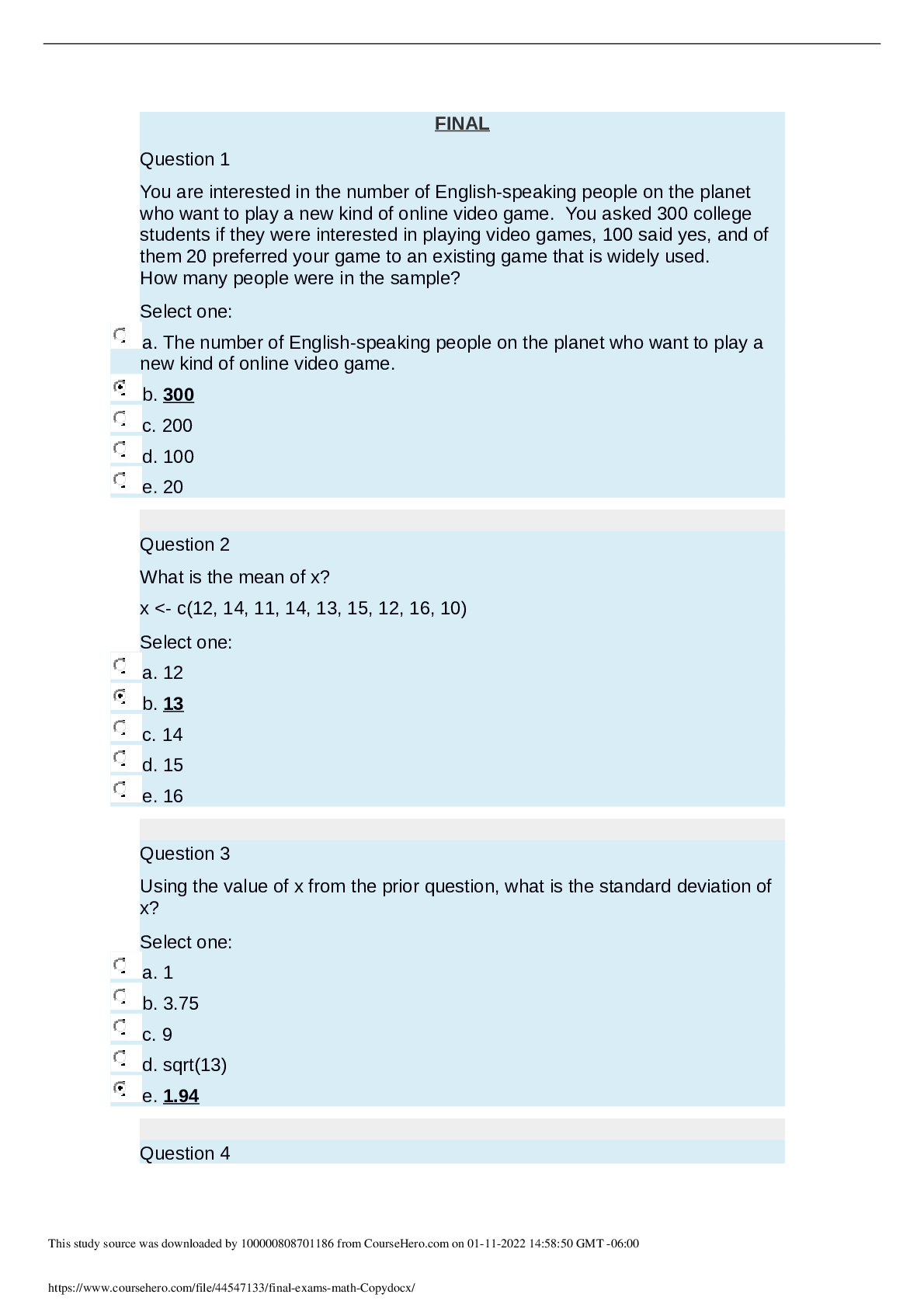Statistics > EXAM > Summary Handbook Statistics Final Exam (CIS) – Questions & Answers (April 2023) (All)
Summary Handbook Statistics Final Exam (CIS) – Questions & Answers (April 2023)
Document Content and Description Below
Attributes - -data elements associated with an entity -Record - -a collection of related data elements -Primary Key - -A field (or group of fields) that uniquely identifies a given entity in a t... able -Foreign Key - -A primary key of one table that appears as an attribute in another table and acts to provide a logical relationship between the two tables -entity - -stores information about a person, place, thing, transaction, or event -relation between entities and attributes in a relational database - -each attribute of an entity occupies a separate column of a table -identity management - -a broad administrative area that deals with identifying individuals in a system (such as a country, a network, or an enterprise) and controlling their access to resources within that system by associating user rights and restrictions with the established identity -Data field and Data Element - -represent the smallest or basic unit of information -data models - -logical data structures that detail the relationships among data elements using graphics or pictures -Metadata - -provides details about data -data dictionary - -compiles all of the metadata about the data elements in the data model -relational database model - -stores information in the form of logically related two-dimensional tables -relational database management system - -allows users to create, read, update, and delete data in a relational database -data latency - -the time it takes for data to be stored or retrieved -information redundancy - -the duplication of data, or the storage of the same data in multiple places -Primary goal of a database - -to eliminate information redundancy by recording each piece of information on ONLY ONE place in the database -information integrity - -a measure of the quality of information -integrity constraints - -rules that help ensure the quality of information -relational integrity constraints - -rules that enforce basic and fundamental information-based constraints -business rule - -defines how a company performs certain aspects of its business and typically results in either a yes/no or true/false answer -Business-critical integrity constraints - -enforce business rules vital to an organization's success and often require more insight and knowledge than relational integrity constraints -(TRUE OR FALSE) Business critical integrity constraints tend to mirror the very rules by which an organization achieves success - -TRUE -Why does a database offer increased information security? - -various security features ensure that individuals have only certain types of access to certain types of information -four functions that a database management system can perform on data in a database - -1. Update data 2. Delete data 3. Read data 4. Create data -Three accurate statements reflecting the business advantages of a relational database - -1. Reduced information redundancy 2. Increased information security 3. increased information integrity [Show More]
Last updated: 2 years ago
Preview 1 out of 16 pages
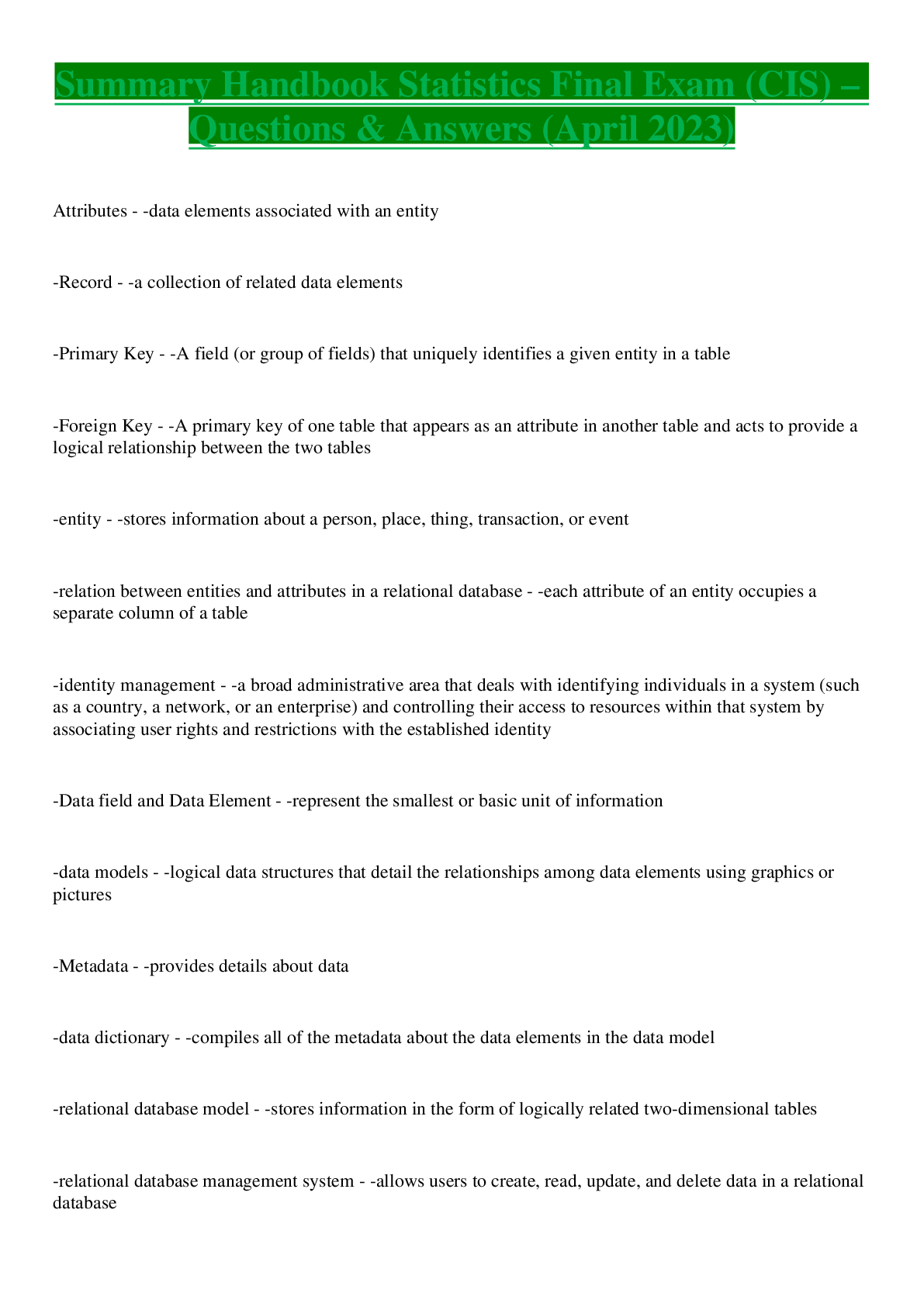
Buy this document to get the full access instantly
Instant Download Access after purchase
Buy NowInstant download
We Accept:

Reviews( 0 )
$1.50
Can't find what you want? Try our AI powered Search
Document information
Connected school, study & course
About the document
Uploaded On
Apr 05, 2023
Number of pages
16
Written in
Additional information
This document has been written for:
Uploaded
Apr 05, 2023
Downloads
0
Views
44

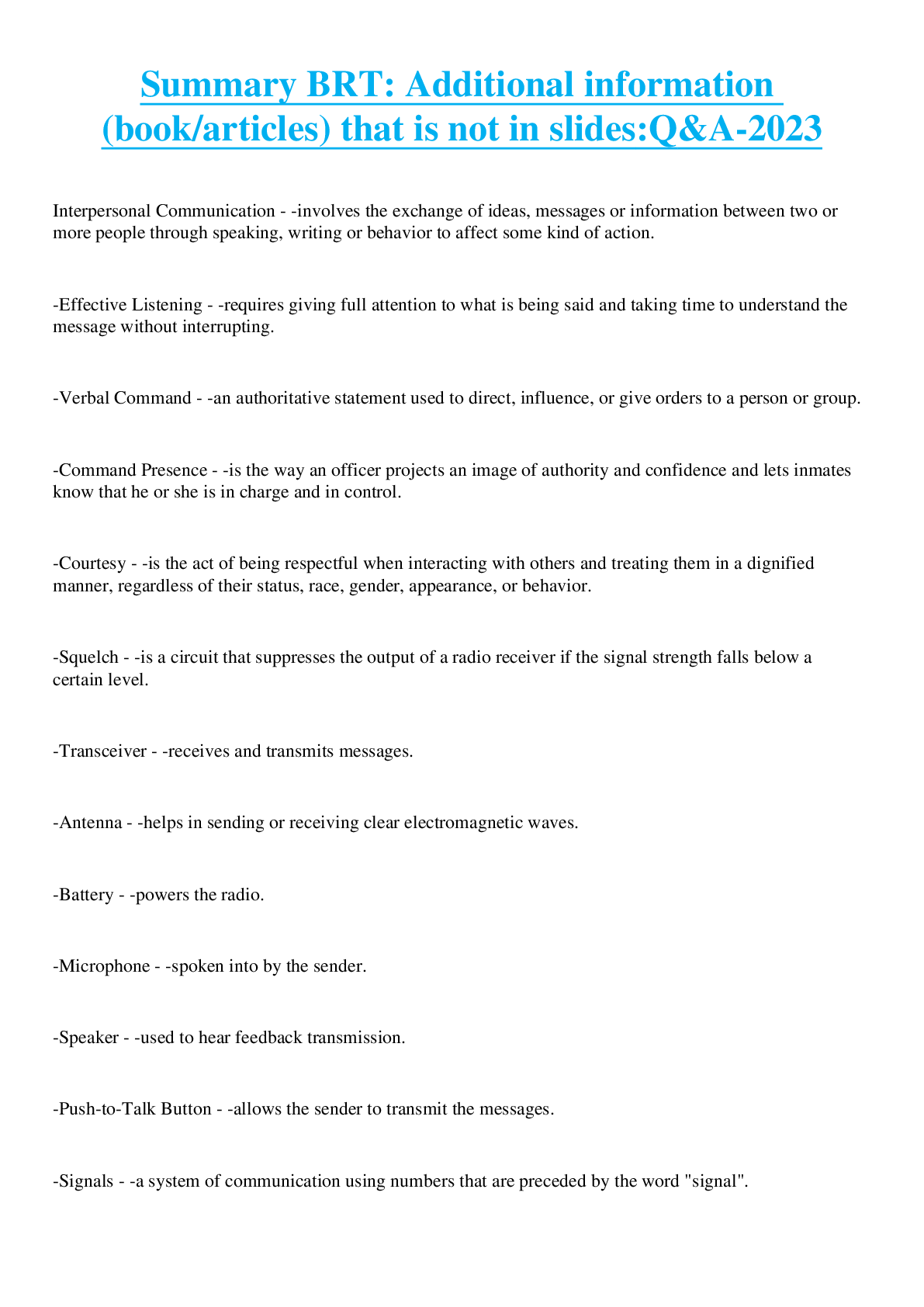
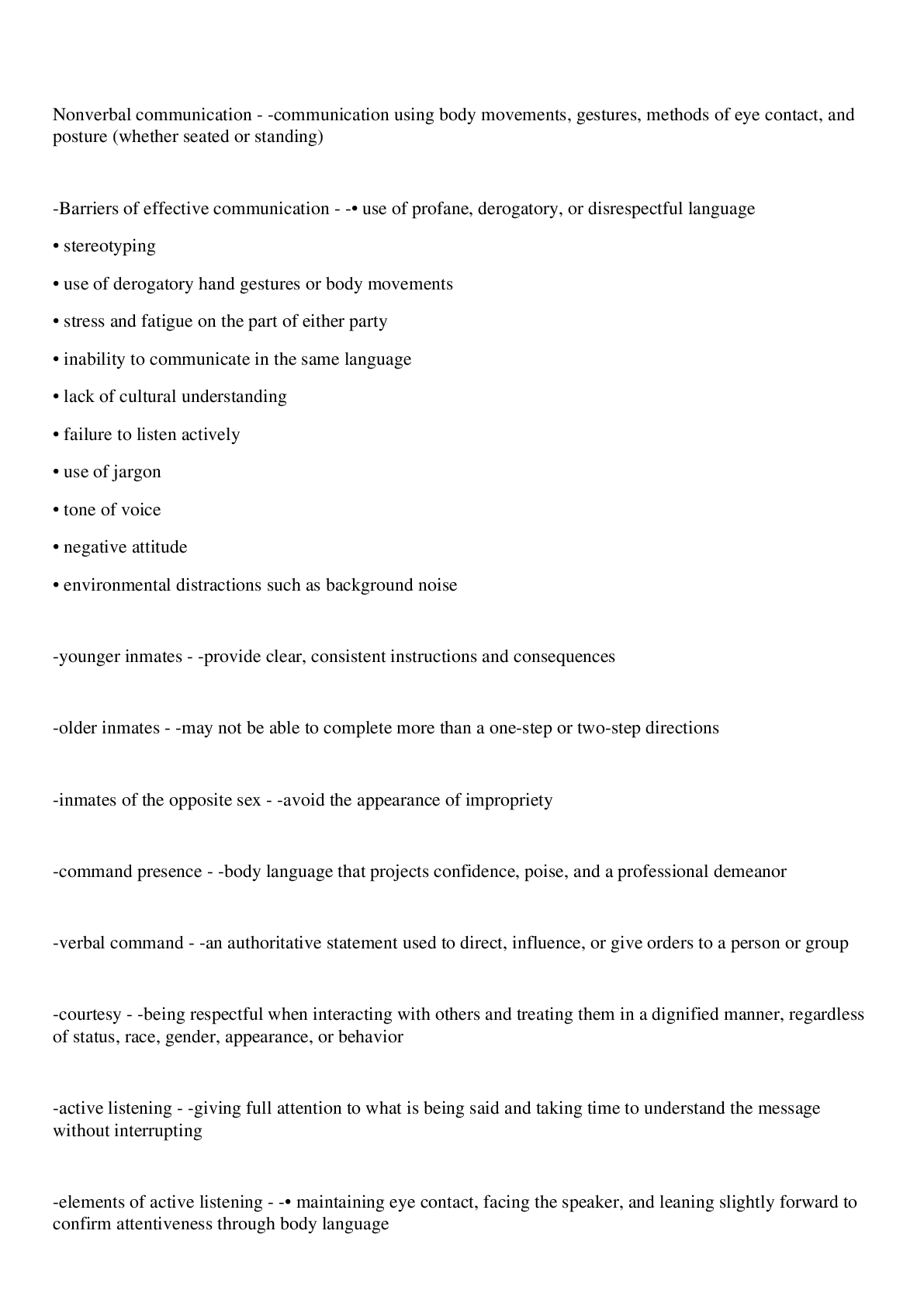
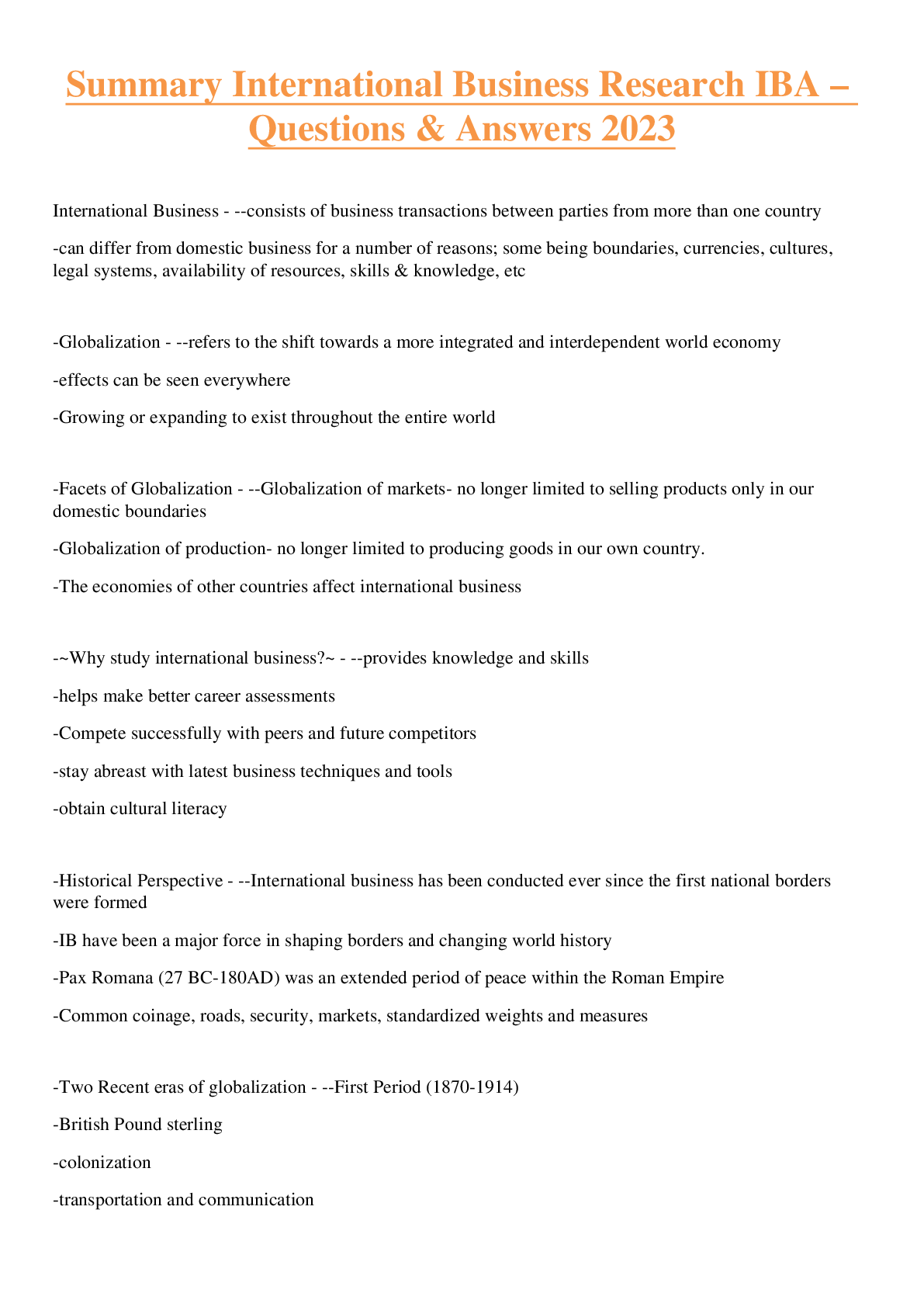
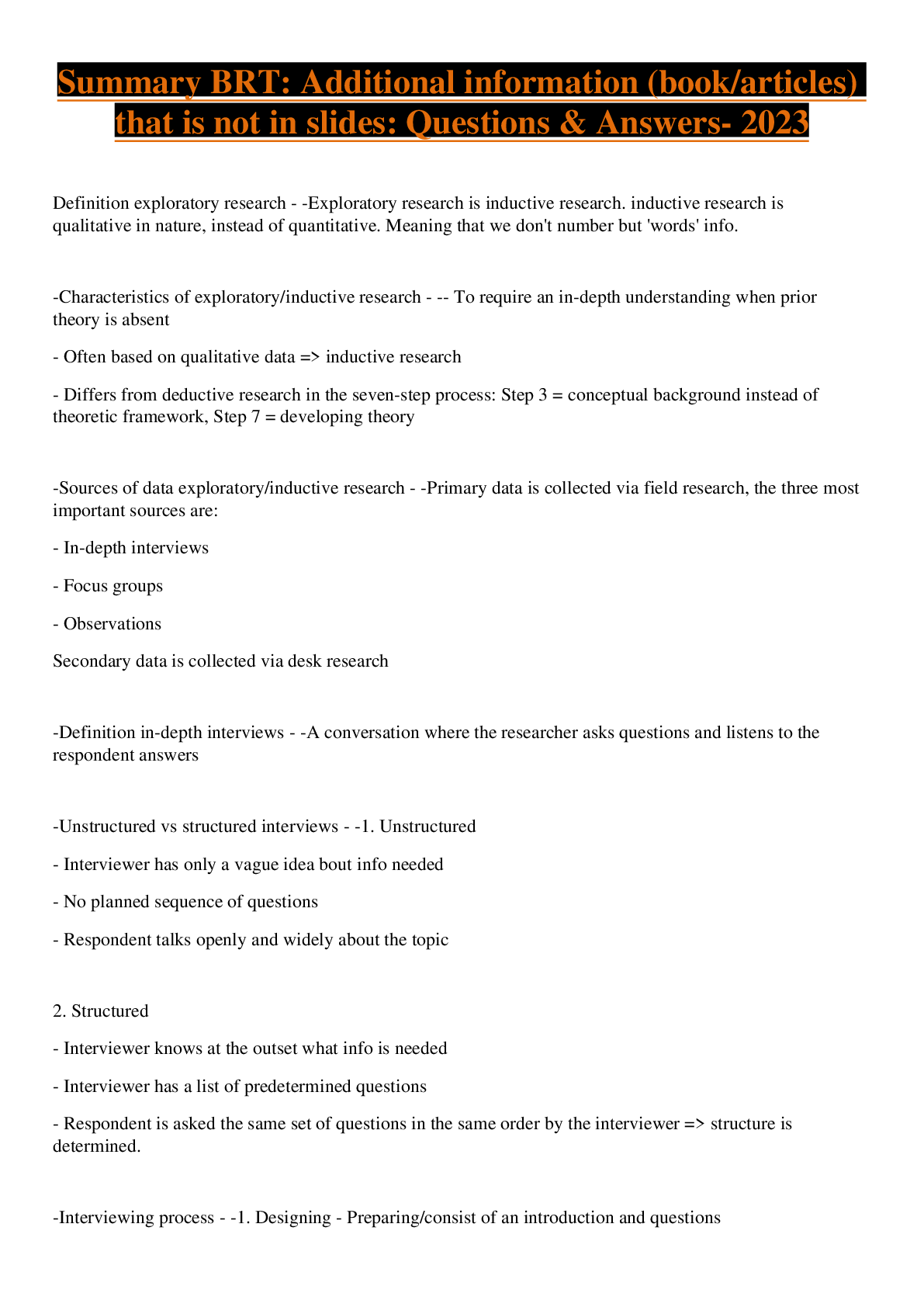
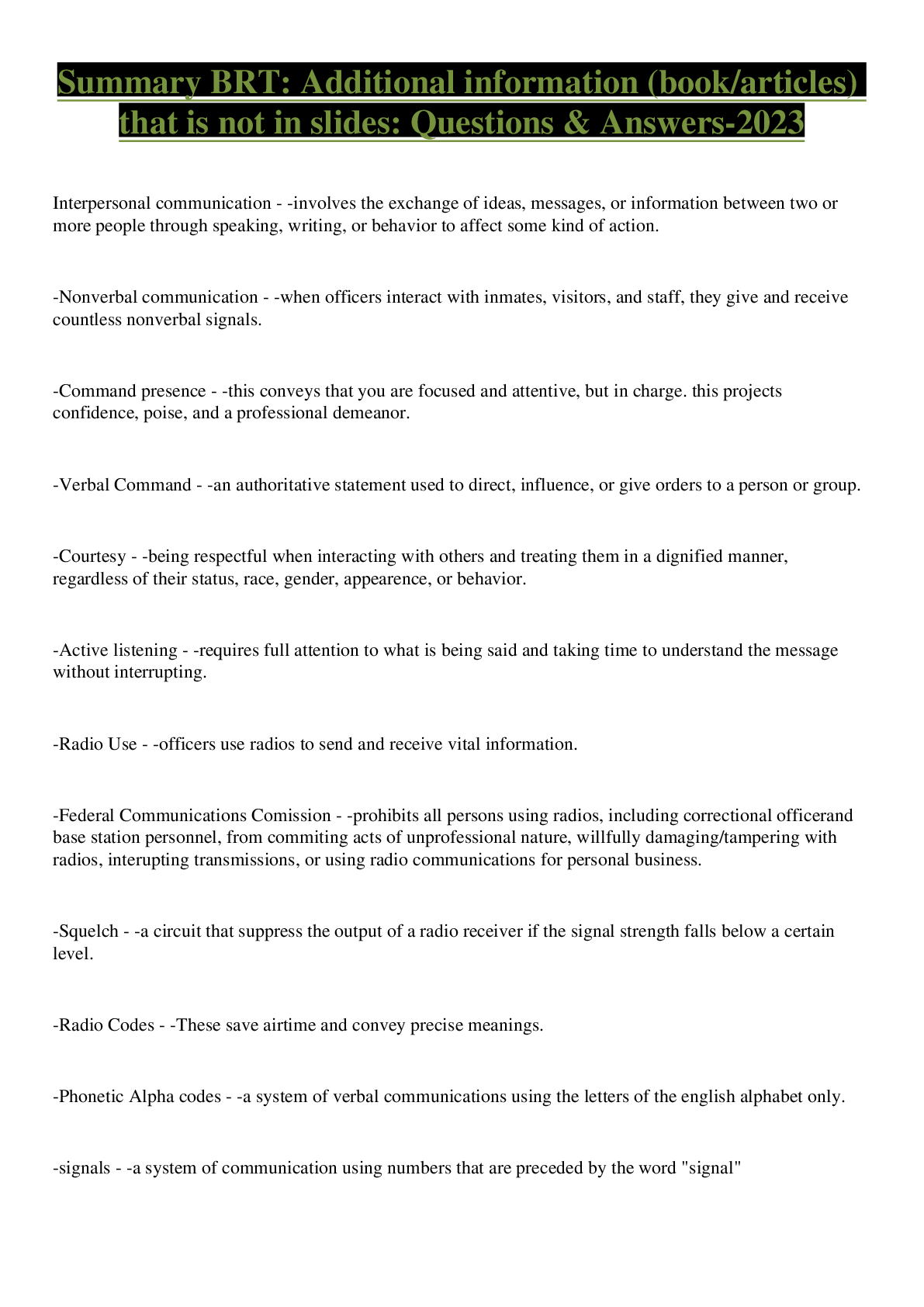

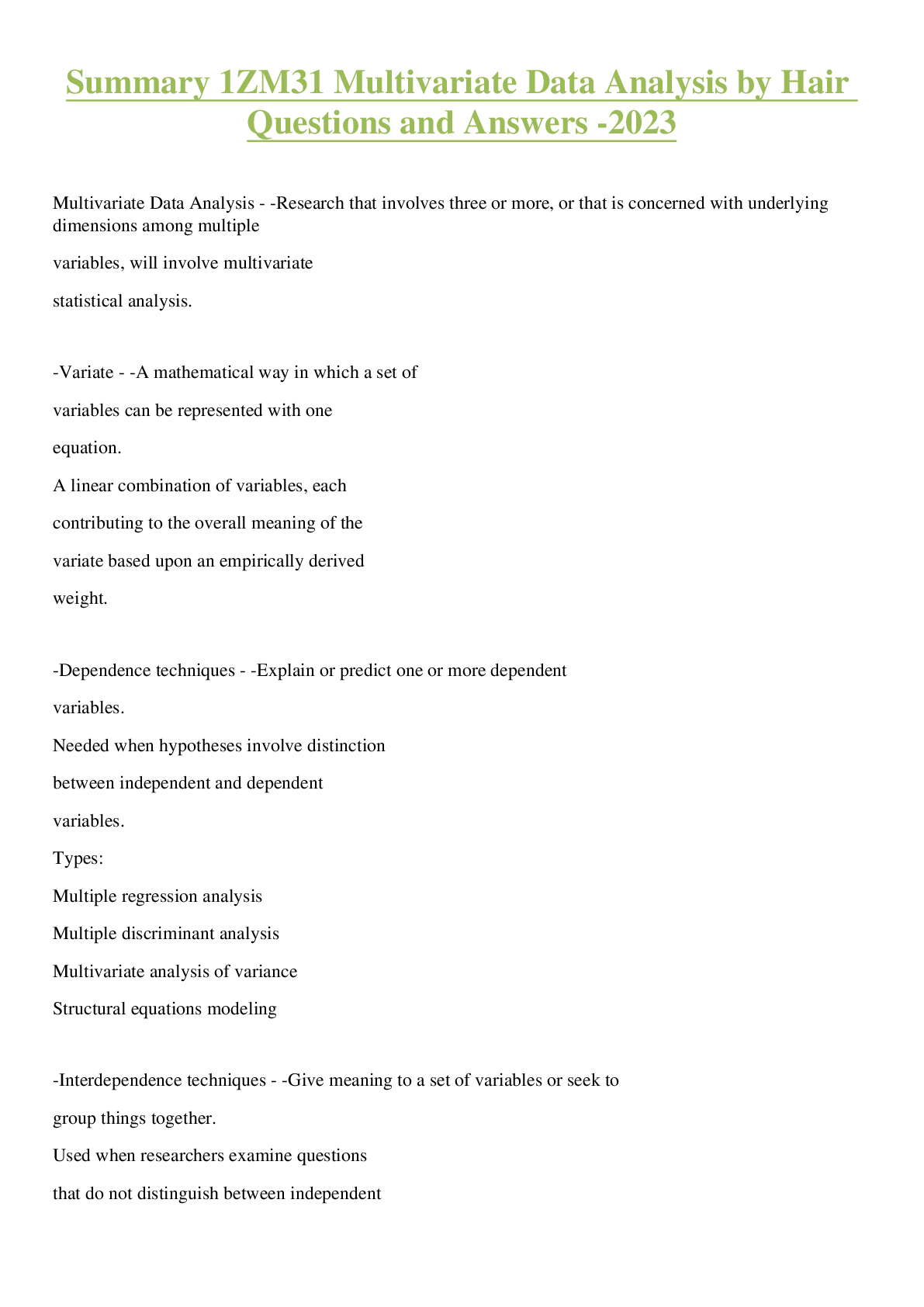

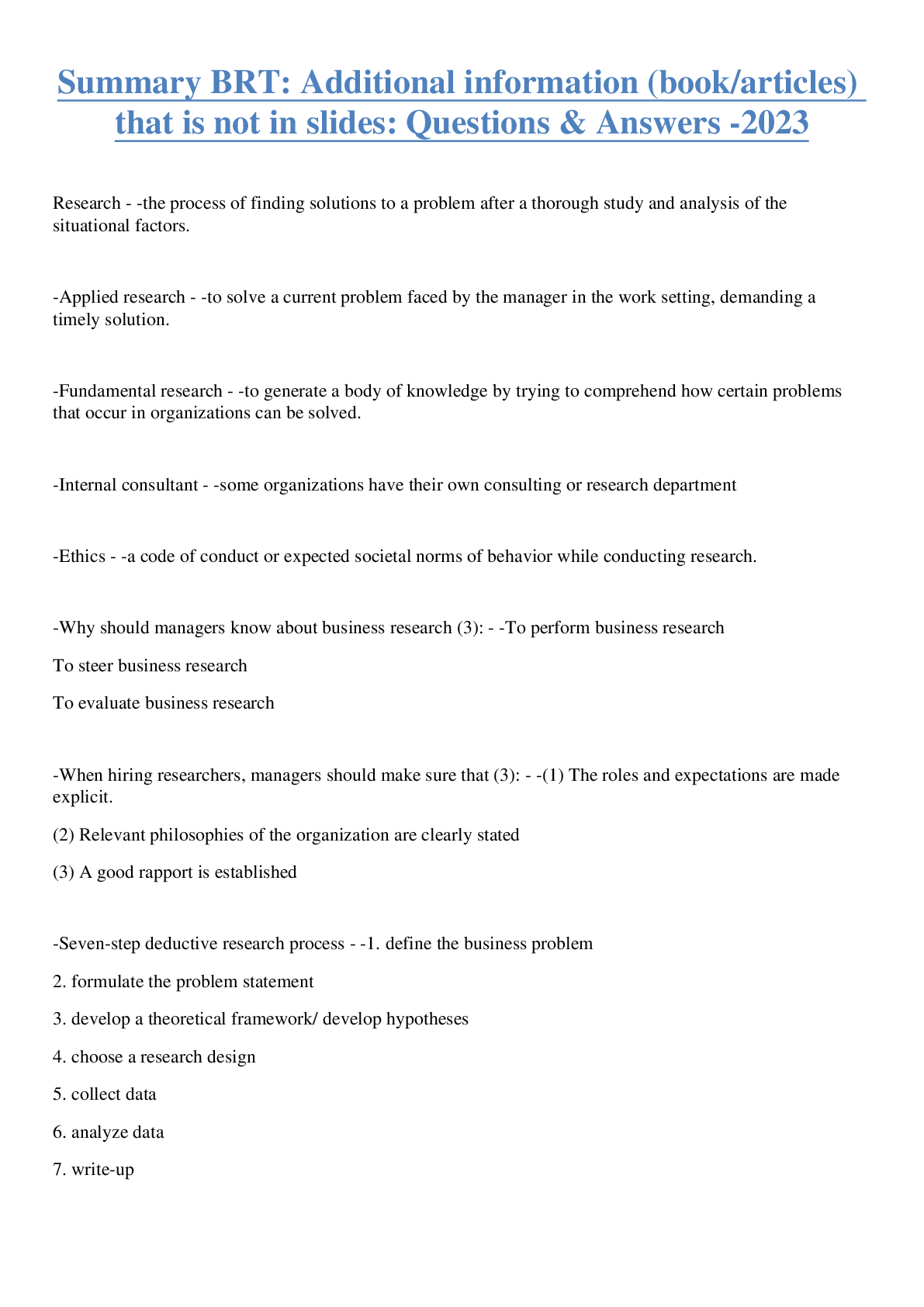
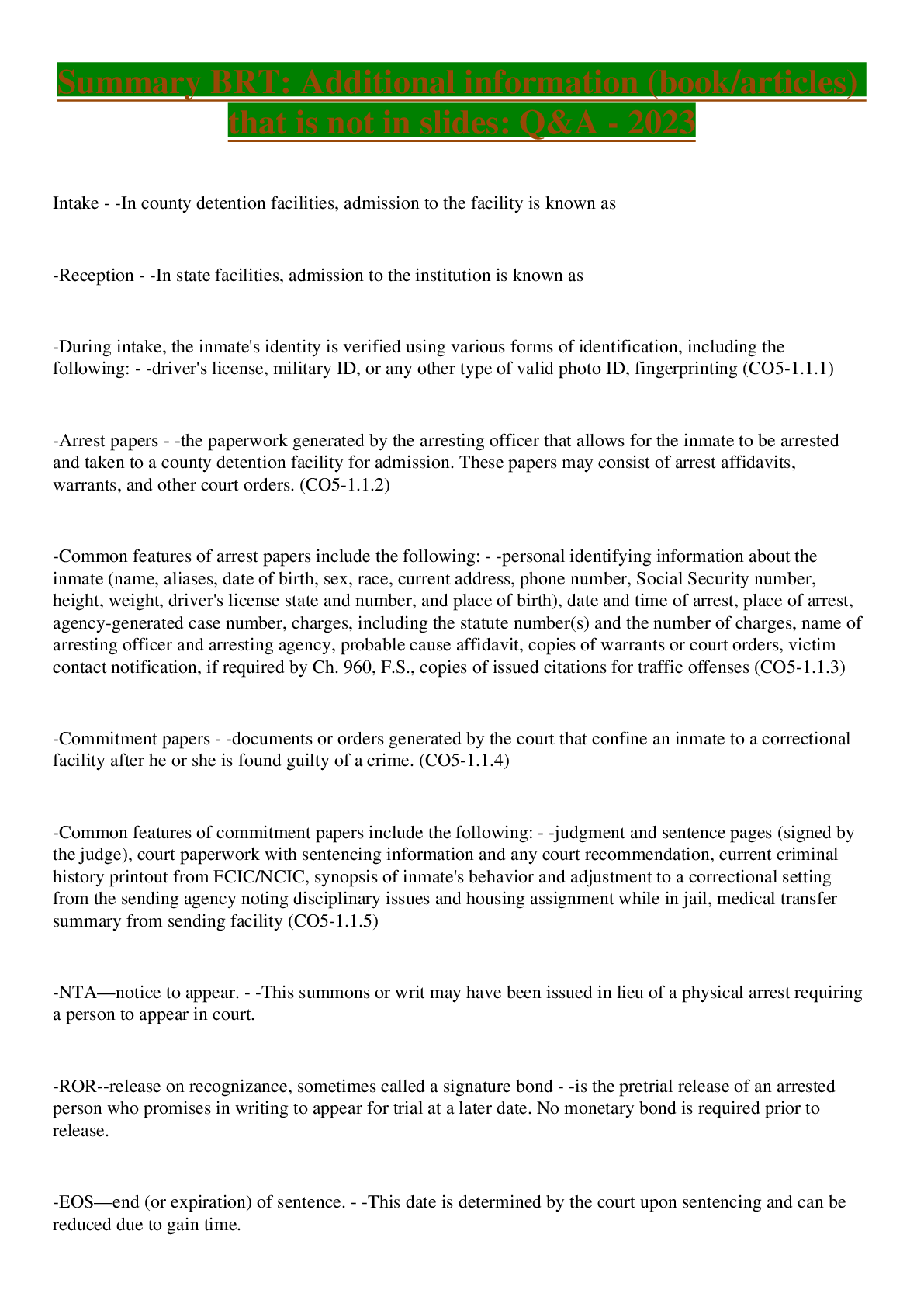


 – CHAMBERLAIN COLLEGE OF NURSING.png)





.png)
